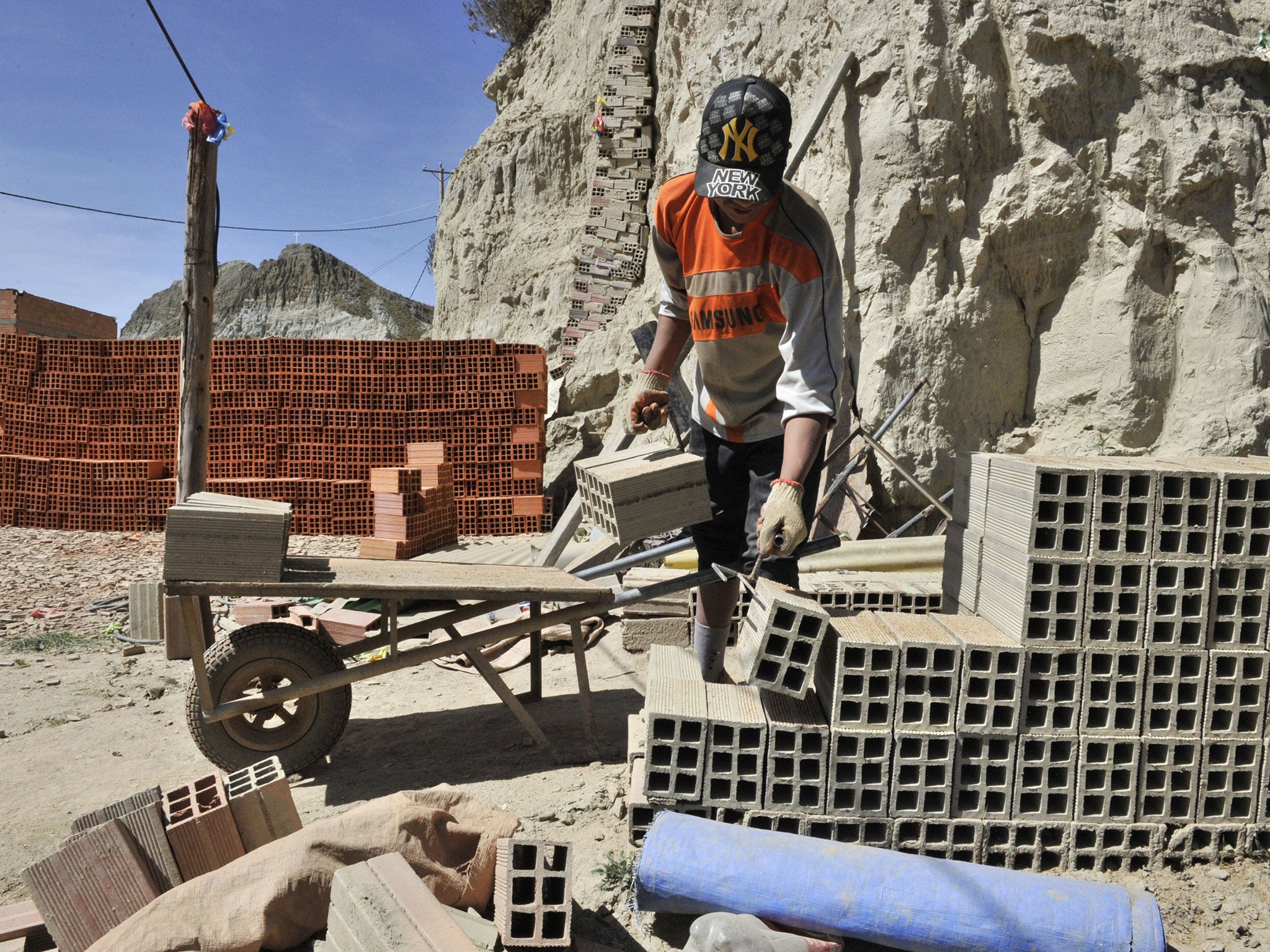Bolivia becomes first nation to legalise child labour
The legislation that was signed on Thursday lowers the legal working age from 14 to 10

Your support helps us to tell the story
From reproductive rights to climate change to Big Tech, The Independent is on the ground when the story is developing. Whether it's investigating the financials of Elon Musk's pro-Trump PAC or producing our latest documentary, 'The A Word', which shines a light on the American women fighting for reproductive rights, we know how important it is to parse out the facts from the messaging.
At such a critical moment in US history, we need reporters on the ground. Your donation allows us to keep sending journalists to speak to both sides of the story.
The Independent is trusted by Americans across the entire political spectrum. And unlike many other quality news outlets, we choose not to lock Americans out of our reporting and analysis with paywalls. We believe quality journalism should be available to everyone, paid for by those who can afford it.
Your support makes all the difference.Bolivia has become the first country to legalise child labour after a law was signed by Vice- President Alvaro Garcia Linera on Thursday.
The new legislation was first approved by Congress earlier this month, and now the signature from Linera means the age that children can legally work is to be lowered from 14 to 10.
Under the new legislation, children above the age of 10 will be allowed to become self-employed workers as long as they have enrolled in school and have the permission of their parents.
Children over the age of 12 will be permitted to take on contract work, again with parental consent and compulsory school attendance.
The law to lower the age in which children can legally work, is all part of the Bolivian government’s plan to help Bolivians living in poverty.
It is hoped that adding another wage to a family’s income could alleviate the financial burdens that a large proportion of Bolivians face.
Senator Adolfo Mendoza, one of the bill's sponsors told the Associated Press: “Child labour already exists in Bolivia and it's difficult to fight it. Rather than persecute it, we want to protect the rights and guarantee the labour security of children."
Child labour is something that is engrained in Bolivian culture, with a large percentage of the adolescent population having to work.
It is estimated that a total of 1 million of Bolivia’s children between the ages of five and 17 currently work, making up 15 per cent of the country’s workforce.
Even the President, Evo Morales, worked as a 14-year-old herding Llama in his hometown of Isallawi.
He is a supporter of the bill and has been quoted in the past as saying that “emiliminating work for boys and girls would be like eliminating people's social conscience."
Read More Stories: Bolivian President Evo Morales signs for local football club
US tobacco child labour: Pickers under threat of health risk due to exposure to nicotine
Apple rocked by child labour claim
The decision by the government has led to a number of anti-child labour groups condemning the decision, claiming that the Bolivia’s new legislation goes against international law.
Carmen Moreno, an International Labour Organisation official working to reduce child labor, said Bolivia's law contravenes a UN convention designating 14 as the minimum work age.
Jo Becker, the children's rights advocacy director at New York-based Human Rights Watch, called the decision short sighted and not a solution to the economic hardship Bolivian people experience.
“Bolivia's move is out of step with the rest of the world,” she said, "child labour may be seen as a short-term solution to economic hardship, but is actually a cause of poverty."
She argued that Bolivia should instead be investing in other ways to try and lift its poorest families out of poverty.
The eradication of child labour around the world and particularly in South America has progressed a lot in the last fourteen years.
According to the International Labour Organization, global child labour had been reduced by a third since 2000 and in between 2008 and 2012 child labour in Latin America and the Carribean had fallen by nearly 2 million.
However, it is argued that the move by Bolivia could halt the progress currently being made.
“The new law runs against the regional current,” said Moreno, “Mexico has set 15 as the minimum age and Chile age 16”.
Additional Reporting by AP
Join our commenting forum
Join thought-provoking conversations, follow other Independent readers and see their replies
Comments